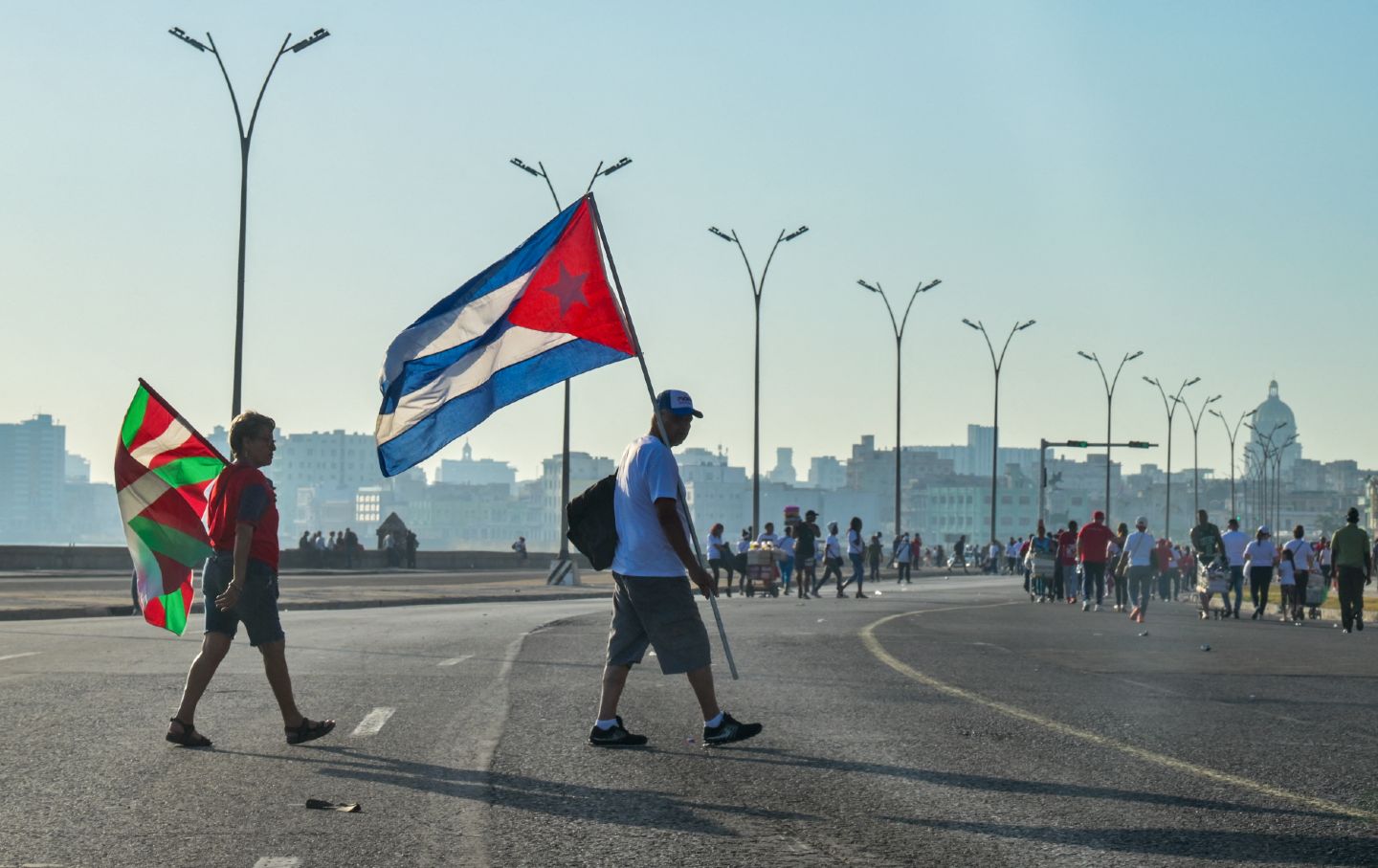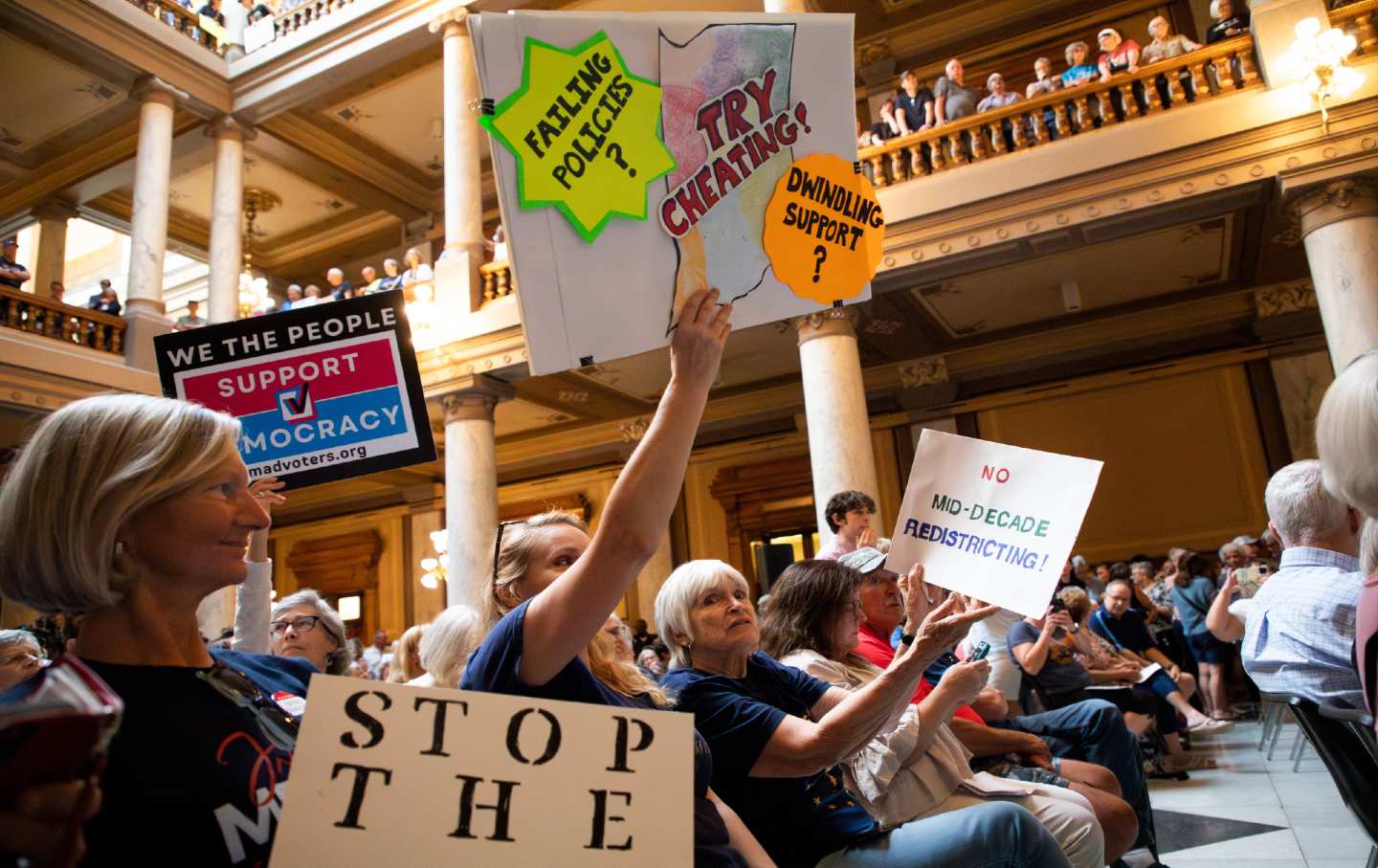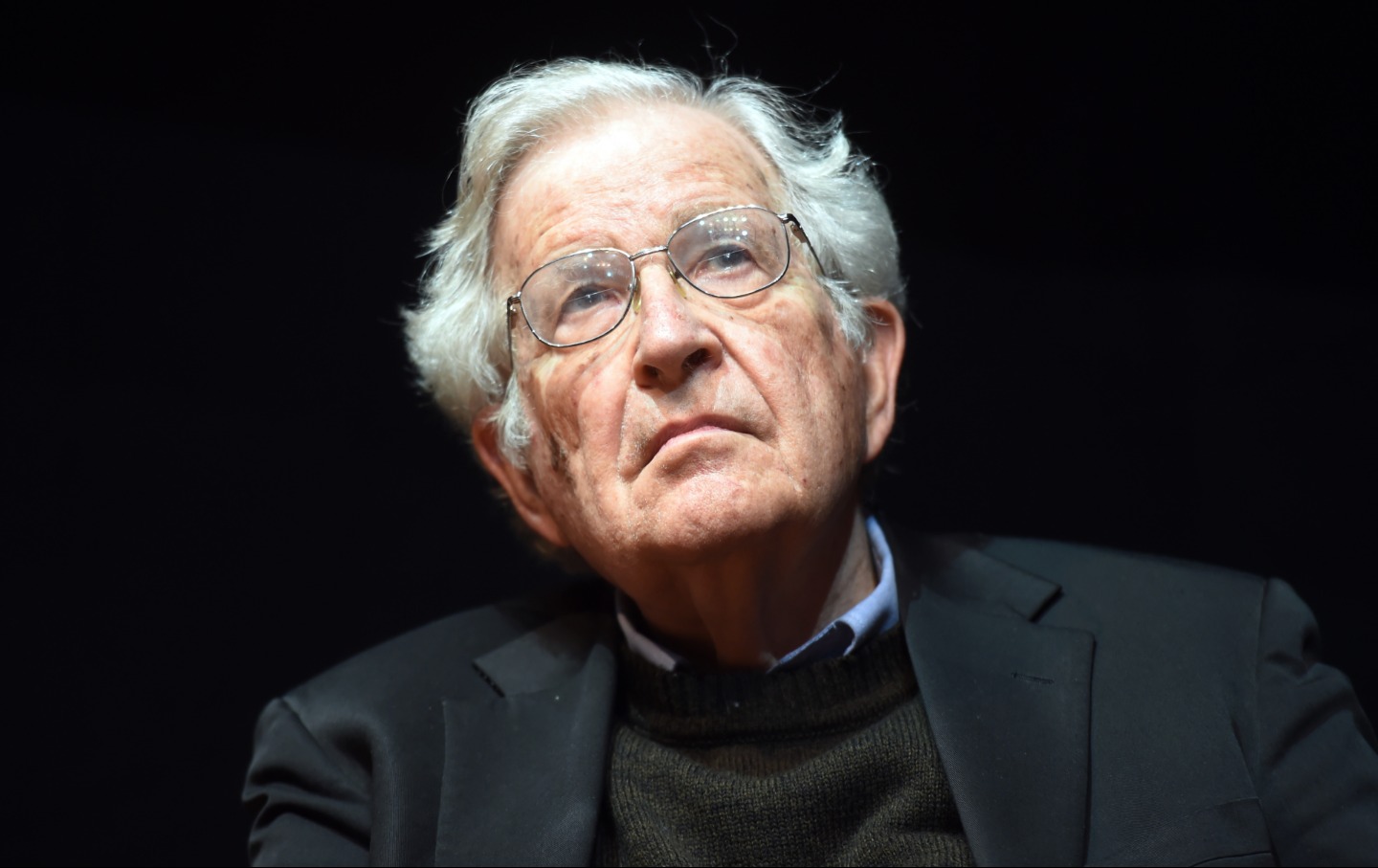Whatever Happened to Reversing Trump’s Cuba Policies?
After campaigning on reversing Trump’s regressive policies in the region, Cuban Americans are frustrated by the president’s subsequent passivity.

Last week, Cuban Americans fanned out on Capitol Hill and at the State Department with a warning for Democrats and the Biden administration: Act now to stop America’s complicity in the economic suffering of millions in Cuba or risk alienating a key group of supporters going into a close presidential election.
It was a reminder that hard-right enthusiasts of maximum pressure against Cuba do not speak for all Cuban Americans—maybe not even for a majority of them. The blitz of office visits to members of Congress and State Department officials hammered home a consistent message that was summed up in an accompanying blunt letter addressed to President Biden and signed by more than 100 organizations and about 650 individuals: “We are shocked and disappointed by your indifference toward the suffering of Cuban families both in Cuba and here in the United States.” The campaign also demonstrated that while Biden faces high-profile pressure from activists within the Democratic Party and the progressive base because of his administration’s continuing support for Israel’s war in Gaza, there is another aspect of his foreign policy that is drawing fire and dampening enthusiasm—but with much less public attention.
“Cuban children are dying right now because of a lack of medication; people are starving,” says Carlos Lazo, a high school teacher and Iraq War veteran from Seattle who leads Puentes de Amor, a group that helps deliver powdered milk and other necessities to Cuba. “People who supported [Biden] are really disappointed. I have Cuban Americans who say, ‘In good conscience, I cannot vote for Biden.’… I say, ‘OK, but if you don’t vote, you are going to be helping Trump.’ Even for me to make the case and say, ‘Guys, we should vote for Biden,’ it’s difficult.”
“I’m very disappointed at Biden, and I think he needs to know that he’s losing some votes,” says Camila Piñeiro, an economist and development consultant in the Washington, D.C., area. “It’s kind of in a way similar to what the Muslims and Arab Americans are doing” in relation to Gaza. “It gets to a point in which I don’t really care if Trump gets elected. Like I cannot vote for Biden if that means that I’m supporting someone who is causing so much pain to my people.”
Attacks on the administration from its left flank on any number of issues—climate, immigration, policing, Gaza, Cuba—raise a similar, wearying political calculus. What’s the trade-off in moderate votes? Where else are progressives going to go? Advocates for a return to Barack Obama’s policy of engagement with Cuba are trying to turn that calculus on its head. Biden “is not going to gain votes by trying to out-Republican the Republicans,” says Manuel Gómez, a retired specialist in occupational health and environmental safety and former executive director of the Cuban American Committee for Normalization of Relations. “He is going to get some votes from the 40-to-50 percent of the Cubans who in the past have voted Democratic under Obama and later even [for] Hillary [Clinton].”
Polling suggests there’s something to this logic, even in South Florida. While in Miami-Dade County support for diplomatic relations with Cuba and opposition to the 60-plus-year-old trade embargo has slipped since reaching high points at the end of the Obama administration, 53 percent of Cubans there still favor diplomatic relations, and larger majorities also support selling food (64 percent), medicine (72 percent), and pursuing policies “to improve economic well-being of Cuban people” (64 percent), according to Florida International University’s 2022 Cuba Poll.
The advocates, organized by the coalition Alliance for Cuba Engagement and Respect, point out that, in his 2020 campaign, Biden promised to do just that. “As president, I will promptly reverse the failed Trump policies that have inflicted harm on the Cuban people and done nothing to advance democracy and human rights,” he told Americas Quarterly in March 2020. Yet, while Biden has eased a handful of the scores of sanctions that Trump imposed on top of the embargo, individual American tourists still can’t visit Cuba, American investors can’t freely support Cuban entrepreneurs, and, most damaging of all, Biden has left in place Trump’s last-minute designation of Cuba as a state sponsor of terrorism, which experts say has crippled Cuba’s access to international banking and world markets. The resulting economic crisis, compounded by the pandemic, has resulted in shortages of food, fuel, and medicine, and has driven more than 500,000 Cubans to flee the island and show up at the US border since 2021, according to US Customs and Border Protection figures.
The White House did not respond to requests for comment. “The administration previously announced a series of measures to support the Cuban people, including support for the development of the private sector, easing restrictions on travel, and expanding consular services at the U.S. Embassy in Havana,” a State Department official told The Nation by e-mail. “We have implemented many of these measures and are committed to continuing our efforts in these critically important areas.” As for the “sponsor of terrorism” designation, the official wrote, “Any future review of Cuba’s status would be based on the law and criteria established by Congress.”
Frustration with Biden boiled over in December when Democrats in Congress said they learned that the State Department had not even begun to review whether Cuba belonged on the terrorist list. “That felt like una falta de respeto, as we say in Cuba”—a lack of respect, says Jorge Quintana, former Hispanic caucus vice-chair for the Democratic National Committee. This was part of the reason the activists gathered in D.C. to protest: Biden was not keeping his campaign promise. “The anti-engagement folks are at it 24-7, and we have to be at it as well,” Quintana says.
The advocate’s Democratic allies in Congress are ready to turn up the heat, too. “I’m not only puzzled, but I’m pissed” at Biden’s slow motion on Cuba, says Representative Jim McGovern of Massachusetts. “This policy, which is a continuation of the Trump policy, is just stupid. It’s counterproductive. It’s hurting the very people that we claim we care about.”
The impact on America’s border—and the political win addressing it could deliver—preoccupies Greg Casar, the young progressive Democrat from Texas. “This is a no-cost way for the president to address some of the immigration issues that he is being criticized for by the right wing,” Casar says. “We aren’t even asking for the president to feed people. We’re just asking for the United States to stop participating in starving people.”
Pramila Jayapal, the progressive Democrat from Washington State and chair of the Progressive Caucus, frames a thaw in relations as good for the United States. “We’re really trying to elevate the issue of Cuba and our national interest in not having a failed state 90 miles from the southern border and not having a humanitarian crisis and being able to support the Cuban people,” she says. “It’s probably going to be difficult to get something through before the election, but hopefully we can set it up so that as soon as we’re done in November, that we can.”
And what if Biden loses? It may be cold comfort for progressive voters—but Trump delivered his harshest blow to Cuban prosperity after he lost the election in 2020, placing Cuba on the list of terrorist states nine days before leaving office. At least a lame duck Biden could undo the damage.
Disobey authoritarians, support The Nation
Over the past year you’ve read Nation writers like Elie Mystal, Kaveh Akbar, John Nichols, Joan Walsh, Bryce Covert, Dave Zirin, Jeet Heer, Michael T. Klare, Katha Pollitt, Amy Littlefield, Gregg Gonsalves, and Sasha Abramsky take on the Trump family’s corruption, set the record straight about Robert F. Kennedy Jr.’s catastrophic Make America Healthy Again movement, survey the fallout and human cost of the DOGE wrecking ball, anticipate the Supreme Court’s dangerous antidemocratic rulings, and amplify successful tactics of resistance on the streets and in Congress.
We publish these stories because when members of our communities are being abducted, household debt is climbing, and AI data centers are causing water and electricity shortages, we have a duty as journalists to do all we can to inform the public.
In 2026, our aim is to do more than ever before—but we need your support to make that happen.
Through December 31, a generous donor will match all donations up to $75,000. That means that your contribution will be doubled, dollar for dollar. If we hit the full match, we’ll be starting 2026 with $150,000 to invest in the stories that impact real people’s lives—the kinds of stories that billionaire-owned, corporate-backed outlets aren’t covering.
With your support, our team will publish major stories that the president and his allies won’t want you to read. We’ll cover the emerging military-tech industrial complex and matters of war, peace, and surveillance, as well as the affordability crisis, hunger, housing, healthcare, the environment, attacks on reproductive rights, and much more. At the same time, we’ll imagine alternatives to Trumpian rule and uplift efforts to create a better world, here and now.
While your gift has twice the impact, I’m asking you to support The Nation with a donation today. You’ll empower the journalists, editors, and fact-checkers best equipped to hold this authoritarian administration to account.
I hope you won’t miss this moment—donate to The Nation today.
Onward,
Katrina vanden Heuvel
Editor and publisher, The Nation
More from The Nation

Indiana’s Gerrymander Victory Won’t Save Us Indiana’s Gerrymander Victory Won’t Save Us
The Hoosier State’s Senate showed rare backbone in resisting the Trump White House’s demand for a mid-cycle gerrymander. But the Roberts court gets the final say.

In America, Mass Shooting Survivors Can Never Know Peace In America, Mass Shooting Survivors Can Never Know Peace
A growing number of US residents have lived through more than one massacre.

What the Noam Chomsky–Jeffrey Epstein E-mails Tell Us What the Noam Chomsky–Jeffrey Epstein E-mails Tell Us
Chomsky has often suffered fools, knaves, and criminals too lightly. Epstein was one of them. But that doesn’t mean Chomsky was part of the “Epstein class.”

Have We Normalized Nuclear War? Have We Normalized Nuclear War?
If anything, the widespread lack of comprehension (and so protest) is one big reason nuclear war remains so chillingly possible.

Blind to Brutality: The Palestinian Death Toll Surpasses 70,000 Blind to Brutality: The Palestinian Death Toll Surpasses 70,000
Over 70,525 Palestinians have been killed in Gaza; scholars estimate that 80 percent were civilians, largely women and children.

What Your Cheap Clothes Cost the Planet What Your Cheap Clothes Cost the Planet
A global supply chain built for speed is leaving behind waste, toxins, and a trail of environmental wreckage.


